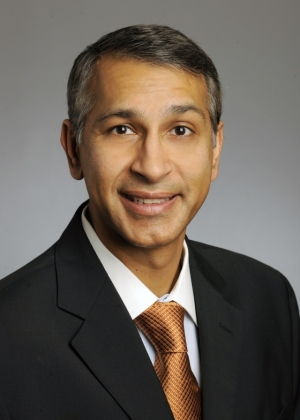by
Carol Ko, Staff Writer | March 13, 2013

Dr. Vinod H. Thourani
from Emory University
School of Medicine in Atlanta.
A new study may provide further reassurance about the long-term safety of TAVR, an experimental minimally invasive heart procedure seeing more adoption in the United States.
The data, presented Sunday at the American College of Cardiology Scientific Sessions in San Francisco, followed 699 high-risk patients averaging 84 years of age. Results show that mortality rates of TAVR patients were roughly equal with those of open-heart surgery patients at the three-year mark.
However, the study also showed that harmful valve leaks associated with higher death rates are still overwhelmingly more common among TAVR patients.




Ad Statistics
Times Displayed: 19090
Times Visited: 362 Stay up to date with the latest training to fix, troubleshoot, and maintain your critical care devices. GE HealthCare offers multiple training formats to empower teams and expand knowledge, saving you time and money
"Physicians should adopt innovative imaging technologies for more accurate sizing to help decrease these leak rates during TAVR," study author Dr. Vinod H.Thourani, Emory University School of Medicine in Atlanta, told ACC attendees.
Given the relative newness of the procedure, studies like this one with extensive follow-up times are important because longer-term outcomes of TAVR patients are still unknown.
In TAVR, doctors position the valve by threading a catheter through an artery in the leg to the heart. For now, the procedure is limited to patients that are inoperable because they are too sick or elderly.
Previous studies had already shown that TAVR patients face an increased risk of stroke at the 30 day mark. However, data from the new study shows that beyond that 30 day mark, patients do not face more risk for stroke than with regular open-heart surgery.
"TAVR should be considered as an alternative to surgery with similar mortality and other, similar major clinical outcomes," said Thourani.

